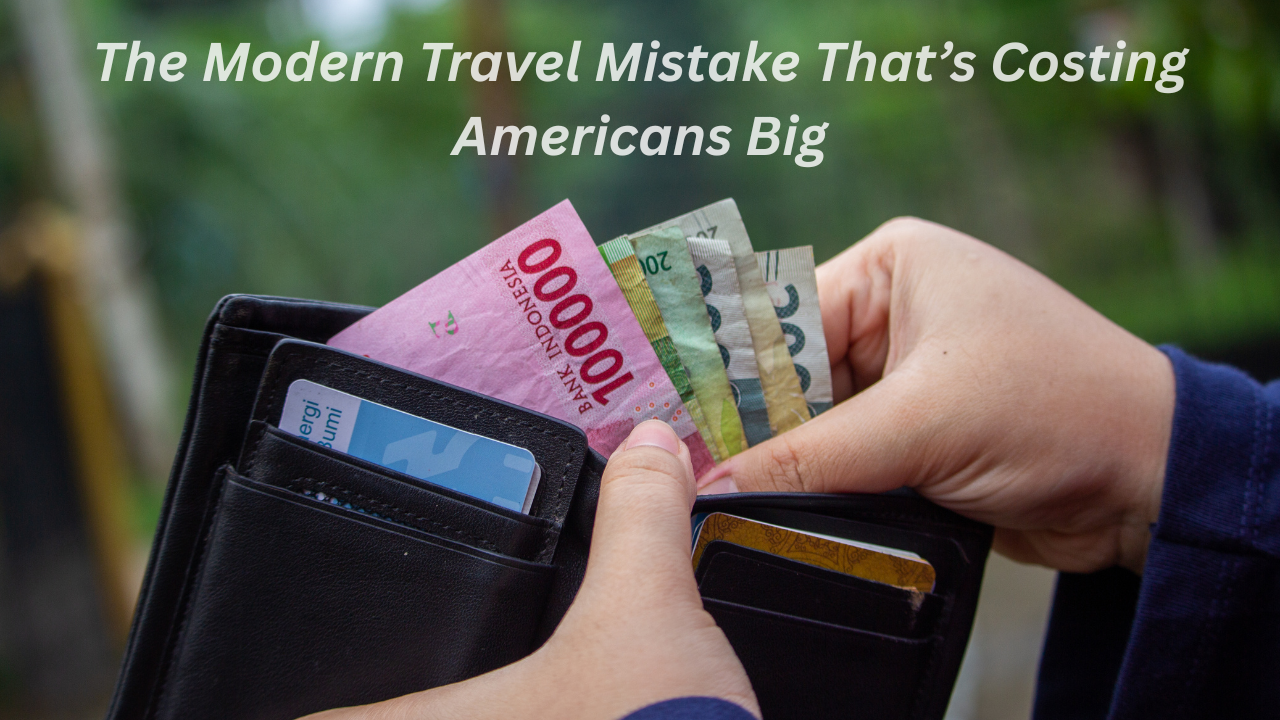Travel
How has modern day travel been made better and easier, How to Cope with Travel Mistakes And Stop Making Them, Mistakes Every Traveler Makes And How to Avoid Them, The Modern Travel Mistake That’s Costing Americans Big, This common travel mistake screams tourist, Travel Mistakes Americans Make (And How to Avoid Them, Travel Mistakes That Cost You Money, What mistakes do many tourists make
ieltspenn@gmail.com
16 Comments
The Modern Travel Mistake That’s Costing Americans Big
Don’t Make This Costly Mistake on Vacation: Why You Should Always Carry Cash Abroad in 2025
The Modern Travel Mistake That’s Costing Americans Big
As global travel bounces back in 2025, U.S. holidaymakers are facing a frustrating new trend: being caught without cash in foreign countries. With the rise of digital payments, many assume they can rely solely on credit cards, mobile apps, or digital wallets. However, real-world experiences are proving otherwise—and travelers are paying the price.
Whether it’s getting stranded at a local taxi stand, being unable to pay for street food in Thailand, or struggling to pay entrance fees at a remote Italian village, not having cash is more than inconvenient—it can derail your trip.
Why Going Cashless Abroad Is Riskier Than You Think

1. Unreliable Card Acceptance
Many local vendors, markets, taxis, and cafes in parts of Europe, Asia, and South America still operate on a cash-only basis. Even in major cities, technical issues or card reader malfunctions can leave you stuck.
2. Bank Restrictions and Fraud Alerts
U.S. banks often flag international card use as suspicious, resulting in blocked transactions. Even if you notify your bank before travel, real-time blocks still happen. This can leave you unable to access your own funds for hours—or even days.
3. Poor Exchange Rates at ATMs
Many tourists assume withdrawing cash at an ATM abroad is easy and cost-efficient. But hidden fees and poor exchange rates can make this option very expensive. Additionally, not all ATM networks are compatible with U.S. cards, especially in rural regions.
4. Emergencies and Unpredictable Situations
From missed buses to impromptu ferry rides, there are countless scenarios where having a few hundred dollars (or the local currency) can save the day. Some countries even require cash deposits for accommodations or rentals.
How Much Cash Should You Carry?
There’s no one-size-fits-all answer, but most travel experts recommend:
- Keeping at least $200–$500 equivalent in local currency
- Splitting cash into multiple safe locations (hotel safe, wallet, hidden pouch)
- Carrying small denominations for taxis, tips, and small purchases
And always have a plan for converting money—whether at a local bank, airport kiosk, or certified currency exchange.
Tips to Stay Safe with Travel Cash

- Never carry all your money in one place
- Use RFID-blocking wallets or money belts
- Keep a written backup of emergency contacts and bank info
- Lock some emergency cash in your checked luggage or hotel safe
Final Takeaway: Go Digital, But Don’t Skip Cash
In a world driven by digital convenience, physical cash may feel outdated—but it’s far from useless. From avoiding embarrassing situations to ensuring basic access to transportation and food, cash can be your travel lifesaver.
Make 2025 the year you travel smarter. Bring the card—but don’t forget the cash
YOU MAY ALSO LIKE THESE POST
John Travolta’s 2025 Net Worth & Biography: From ‘Grease’ Icon to Aviation Tycoon










16 comments